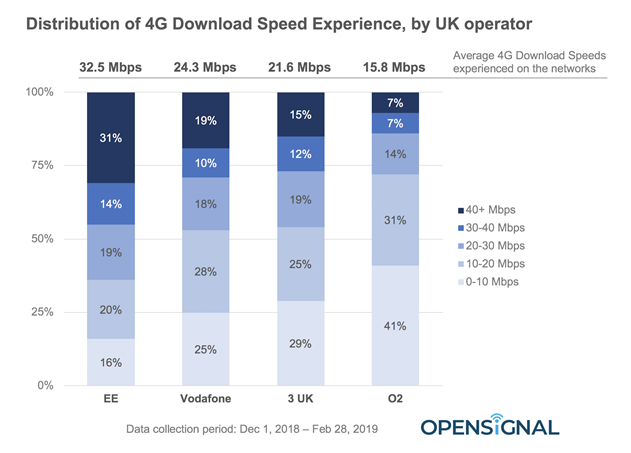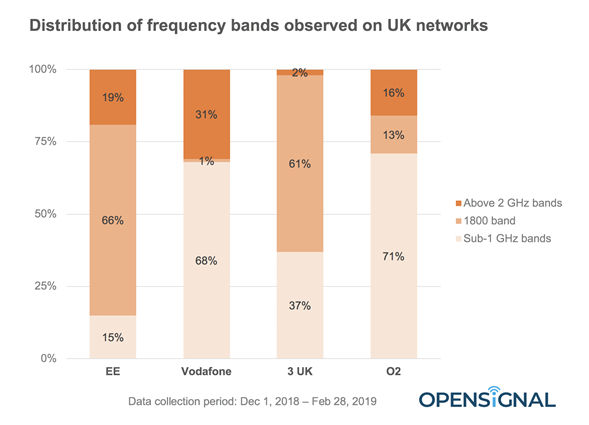Faster isn’t always better - O2Faster isn’t always better - O2
With a new Opensignal report suggesting O2 has the slowest download speeds of the UK MNOs, the telco has hit back suggesting experience is about more than just speed.
May 14, 2019

With a new Opensignal report suggesting O2 has the slowest download speeds of the UK MNOs, the telco has hit back suggesting experience is about more than just speed.
According to the report, O2 has the largest proportion of customers experiencing slower speeds across the UK. This is down to a number of different factors, one of which is how spectrum holdings have shaped 4G deployment strategies.
The image below outlines what percentage of customers are experiencing different speeds across all the UK MNOs.

While this might not paint the prettiest of pictures for O2, the telco has pointed out faster is not necessarily better.
“O2’s network deployment is focussed on customer experience and demand rather than maximum capabilities of certain aspects of network performance such as download speeds,” an O2 spokesperson said. “Some of the most popular mobile applications such as playing the game Fornite or streaming high definition content from Netflix require around 3-5 Mbps.”
Such is the obsession with speed, the entire telco industry is built on the concept of ‘bigger, faster, meaner’. Performance of telcos are measured on average speeds, however, one should perhaps question what speeds are necessary to produce the desired customer experience. Sometimes 10 Mbps is all that is required.
“We continue to invest £2m every day to improve the network experience for our customers as well as using a combination of technical and customer insight to gauge how well the network is performing and how satisfied customers are with their service. For the second year running O2 recently won uSwitch’s 2019 award for best network coverage as voted by the public and continues to have among the lowest levels of churn in Europe.”
In fairness to O2, you can’t argue with the numbers. In terms of market share, O2 is the leading telco in the UK. It must be doing something right otherwise how would it maintain this position? It isn’t the cheapest, the fastest or one which can offer any sort of convergence offering.
This second image from Opensignal indicates the spectrum holdings which are being utilised by each of the telcos.

As you can see O2 is heavily reliant on the sub-1 GHz bands. The advantage of this band is greater range and better indoor coverage, though there is a trade-off when it comes to speed. And while some might complain about the lack of horse-power, it doesn’t seem to matter than much at the end of the day.
In the last financial results, O2 boasted of year-on-year revenue growth of 5.3%, a total subscription increase of 2.3% and customer churn of 0.9%, the lowest in the market, it claims.
What is worth noting is this is relevant for today. This might seem like an incredibly obvious statement, but developers are constantly bringing out new applications which test the boundaries of acceptability. Video and more immersive gaming content are ensuring demands on the network, and capable speeds, are a constant threat.
For the moment, this position from O2 seems perfectly sustainable, but how long the status quo lasts remains to be seen. Speed is not necessarily the defining factor of experience today, as long as fast is fast enough.
About the Author
You May Also Like










.png?width=300&auto=webp&quality=80&disable=upscale)


_1.jpg?width=300&auto=webp&quality=80&disable=upscale)